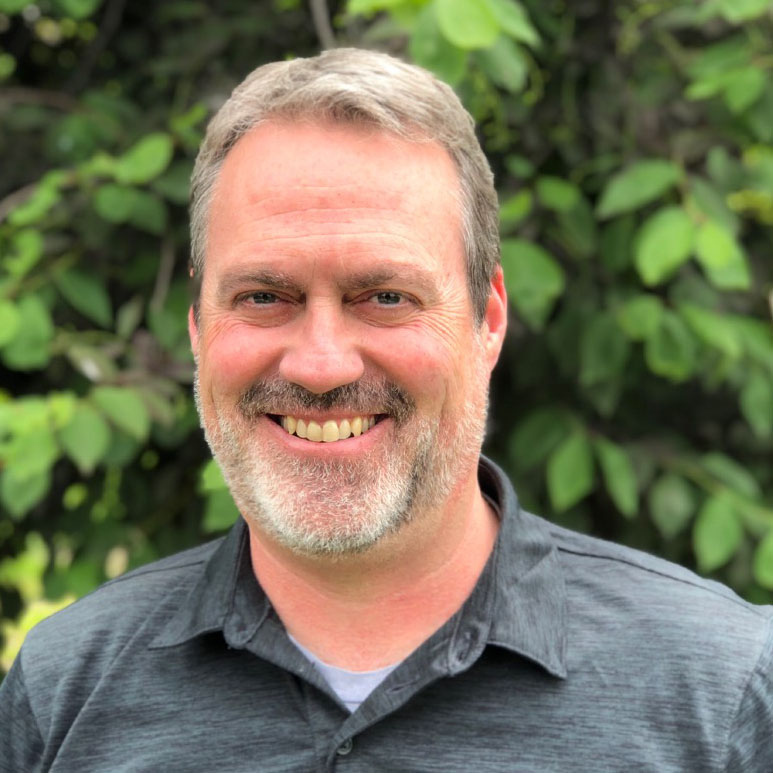Gaining clarity on achieving net-zero carbon production

OPPD held its sixth public workshop for its Pathways to Decarbonization initiative on Dec. 9. The project is helping the utility reach its goal of net-zero carbon production by 2050.
For the past 18 months, OPPD has worked with internal and external stakeholders to shape the best pathways toward that goal. The utility called the project its “biggest resource planning effort ever.”
The latest workshop, like the previous ones held throughout 2021, attracted engaged citizens, members of other utilities and civic leaders. OPPD officials said such engagement is just what planners envisioned.
“It’s great to see so many of you taking the time to provide input as we work toward our goal,” said Sarah Lake, Community Engagement coordinator at OPPD. “We’ve received a lot of thoughtful and informed feedback throughout this process.”
Key takeaways
Among the key takeaways from the workshops:
- OPPD can achieve net-zero carbon while balancing affordability and reliability. Net-zero is achievable with projected generation and transmission cost impacts of approximately 10 to 20%, over time, by 2050 while maintaining resource adequacy levels.
- In all net-zero carbon scenarios, generation from fossil resources would be increasingly displaced by low-carbon resources. All scenarios will ultimately include repowering or retiring OPPD’s coal generation facilities by 2050.
- A mix of new low-carbon generation resources will be required, including renewable energy, energy storage and community-wide energy efficiency.
- While wind, solar, energy storage and demand-side energy efficiency resources support reliability, they have limitations. This is especially true during certain extreme, multi-day weather events. The utility needs firm, reliable resources to support the system during critical periods.
- Accelerating pathways to net-zero carbon results in relatively low incremental cost. But it requires integrating higher levels of resources in the near-term, which may pose supply chain, financial, grid interconnection and operational risks.
- The changing resource mix poses new challenges with regard to resiliency, or the ability of the electric system to recover after a destructive event like severe weather. Utilities must evaluate, understand and mitigate these challenges as the grid continues to evolve.
OPPD conducted all of its engagement with stakeholders online because of COVID-19 restrictions. Recordings of all workshop presentations can be viewed on OPPD Community Connect.
Pathways forward
The workshops did not culminate in a singular final recommendation or decision on how OPPD will achieve the net-zero goal. Rather, the workshops produced a comprehensive study of modeling scenarios to provide directional pathways toward achieving net-zero carbon emissions. Work in this regard continues and OPPD is part of the utility’s Integrated Resource Plan (IRP).
Every five years, OPPD submits an IRP to one of its energy partners, the Western Area Power Administration (WAPA), as part of a contractual commitment for hydroelectric power.
An IRP is a road map detailing how OPPD will generate power in the future. IRPs evolve over time to reflect the changing environment and energy industry. OPPD’s work toward 600 megawatts of new solar with natural gas backup are components of the IRP.
Outreach for OPPD’s IRP started in mid-January, and the utility has posted a draft plan on the Community Connect site. You can also watch a recording of the virtual presentation of the plan.
Materials available
Anyone interested in viewing or learning more about the study’s recommendations as they stand now can view the presentation and other Pathways to Decarbonization materials on Community Connect.
The four focus areas currently being studied are:
- Internal operations – Developing an inventory of carbon emissions across OPPD and identifying means to decarbonize OPPD’s non-generation footprint.
- Customers – Identifying products and programs which can help OPPD customers reduce their own carbon footprint.
- Community – Developing partnerships to reduce the carbon footprint of the communities that OPPD serves. Providing information, advocacy and leadership.
- Energy portfolio – Studying pathways to eliminate or significantly reduce greenhouse gas (GHG) emissions from the OPPD energy portfolio, while balancing impacts on reliability, resiliency, and affordability. This work directly supports the utility’s IRP efforts, which will be finalized in March 2022.
As OPPD moves forward with its Pathways to Decarbonization plan and its coming IRP, customer engagement will continue.

Jason Kuiper joined OPPD as a communications specialist in 2015. He is a former staff writer and reporter at the Omaha World-Herald, where he covered a wide range of topics but spent the majority of his career covering crime. He is a graduate of the University of Nebraska at Omaha and has also appeared in several true crime documentary shows. In his free time he enjoys cooking, spending time with his wife and three children, and reading crime novels.
View all posts by Jason Kuiper >







